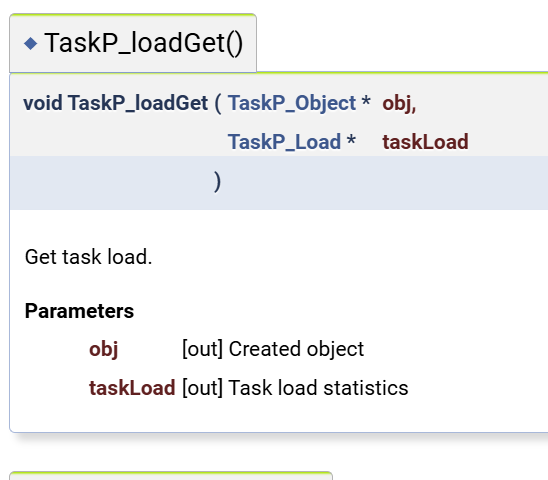Tool/software:
Hi Team,
My customer is using TaskP_loadGet() to acquire the TaskP_Load struct, but they want to use the runTime() within the struct to get task run time in the usec order. Is it possible to do this?
TaskP_LOAD_UPDATE_WINDOW_MSEC is only able to get runtime upto 500msec. Is it only possible to measure runtime in 500msec order?
Also, in the API for TaskP_loadGet(), it says "obj [out] Created object" but should it not be "obj [in] Created object"?
Best regards,
Mari Tsunoda


